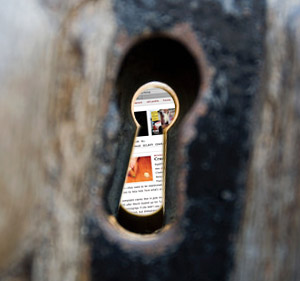A study released this week (just in time for the FTC’s online advertising workshop) shows that a huge percentage of Americans don’t grasp just how intensively their online habits are tracked, analyzed, and used to serve ads back to them. Almost 55% of respondents “falsely assumed that a company’s privacy polices prohibited it from sharing their addresses and purchases with affiliated companies,” and almost 40% “falsely believed that a company’s privacy policy prohibits it from using information to analyze an individuals’ activities online.”
cookies

The Science of Disgust
Would you be less likely to eat a cookie that had touched a package of kitty litter while in a shopping cart? A clean, sealed package? Some scientists say you would, and that information is of use to marketers. From Time:
Any food that touched something perceived to be disgusting became immediately less desirable itself, though all of the products were in their original wrapping. The appeal of the food fell even if the two products were merely close together; an inch seemed to be the critical distance. “It makes no sense if you think about it,” says Fitzsimons. More irrationally still, the subjects were less comfortable with a transparent package than an opaque one, as if it somehow had greater power to leak contamination. Whatever the severity of the taint, the result was predictable.

Make It Yourself With Top Secret Recipes
If you’re looking for a way to make a cherry Slurpee in your own kitchen, Lifehacker may have found the answer. It’s called “Top Secret Recipes” and it has recipes for everything from Applebee’s to, yes, Girl Scout Thin Mint Cookies.
Opt Out Of Junk Mail, Calls and Cookies
Reduce the noise in your life by getting rid of the marketing junk flooding in.

New Oblong Oreos Made For Dunking
When I was a lad in the early 90’s, my friends and I were in perpetual fear of turning gay. We’d been told by many authority figures that one could somehow wake up and realize that they were gay, and so an elaborate system of early warning signs was passed into junior high dogma. For example, if you preferred to wear your watch on your right wrist, you were probably turning gay. The way you crossed your legs was also a signal of imminent homo-eroticism: the proper method was to balance one ankle on the opposing knee, giving proper breathing room to your elephantine testicular sack.


